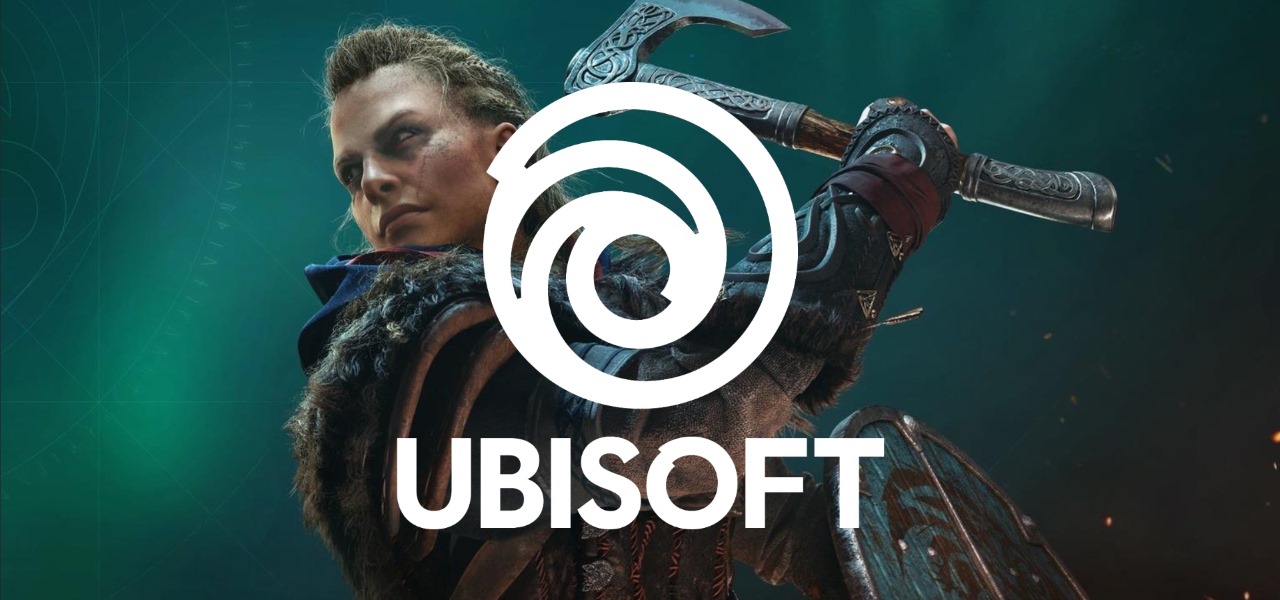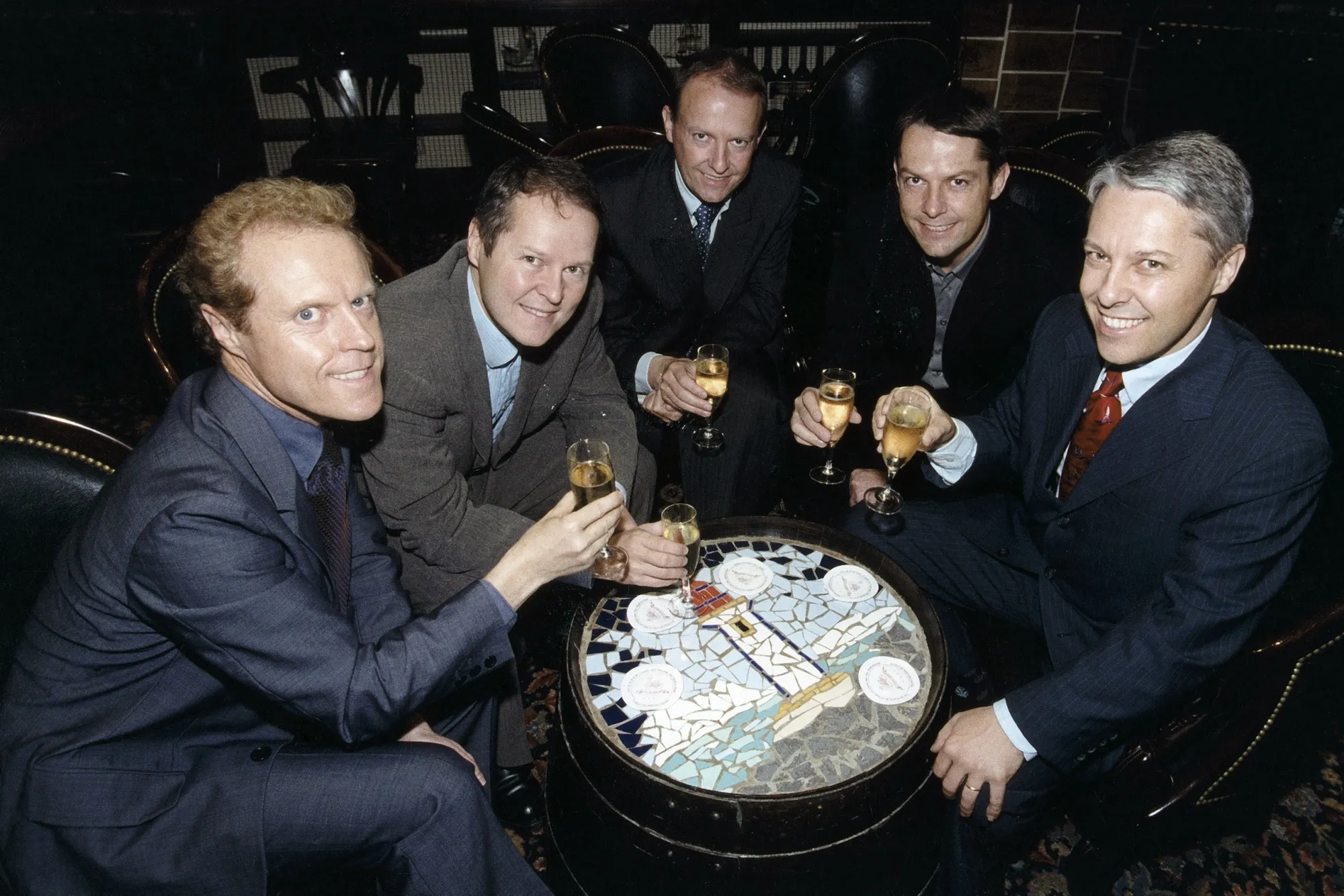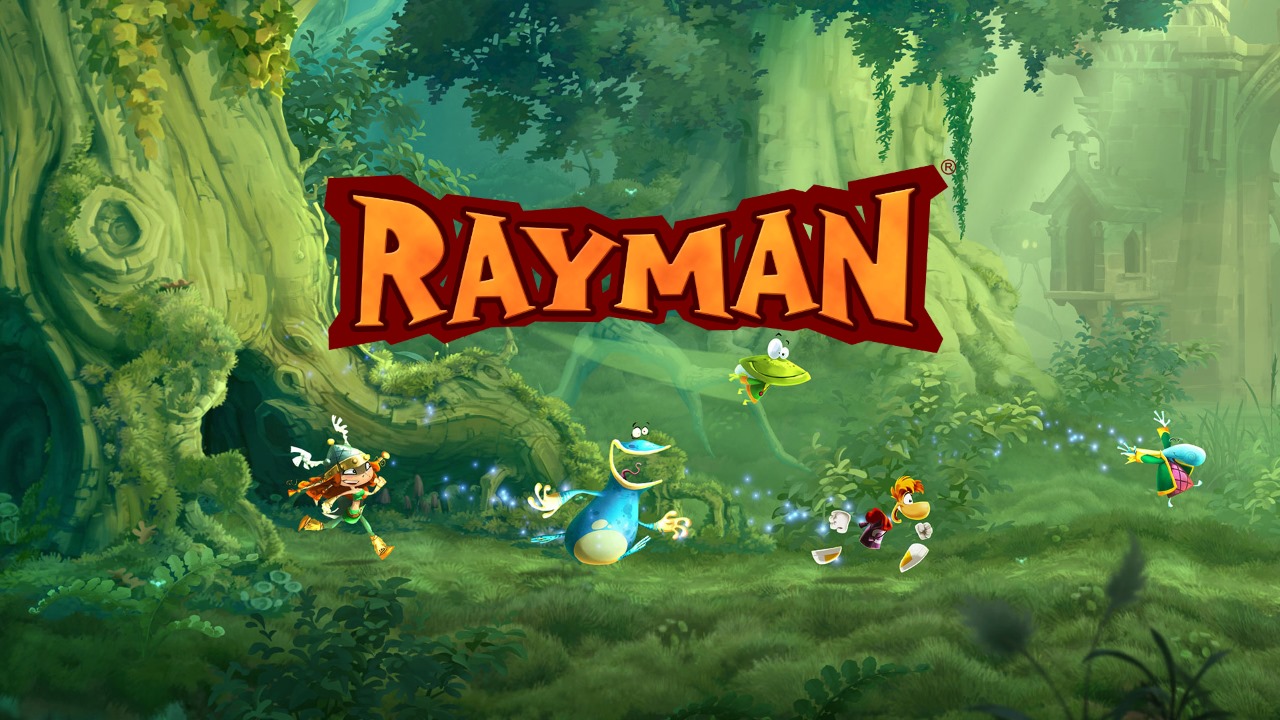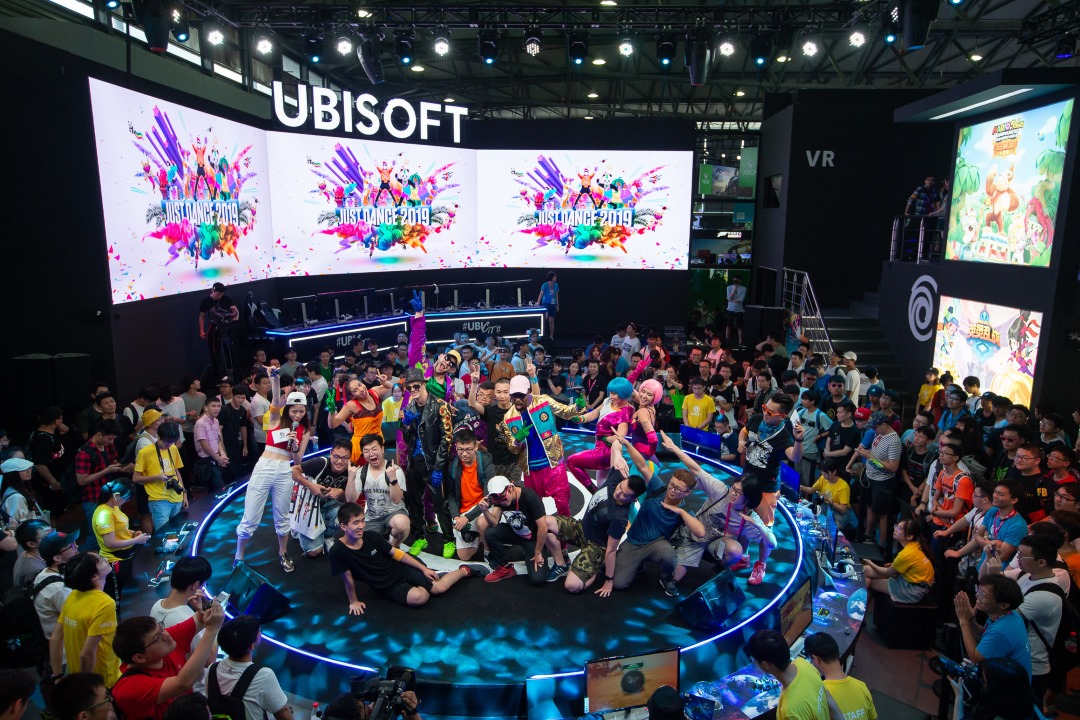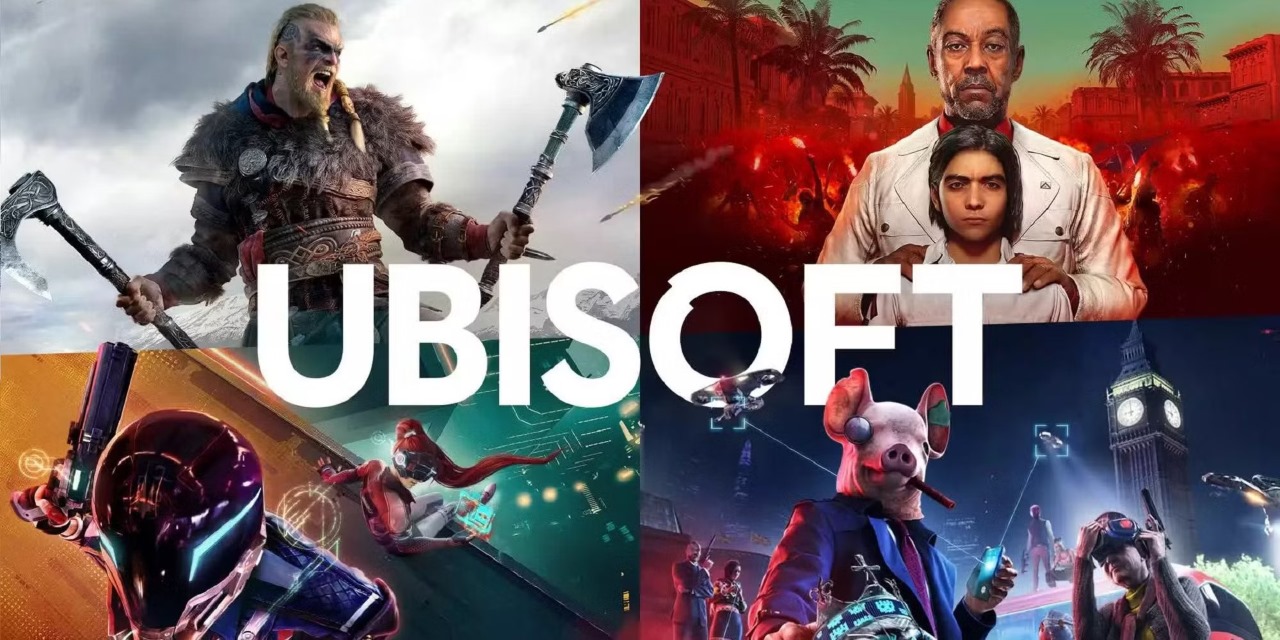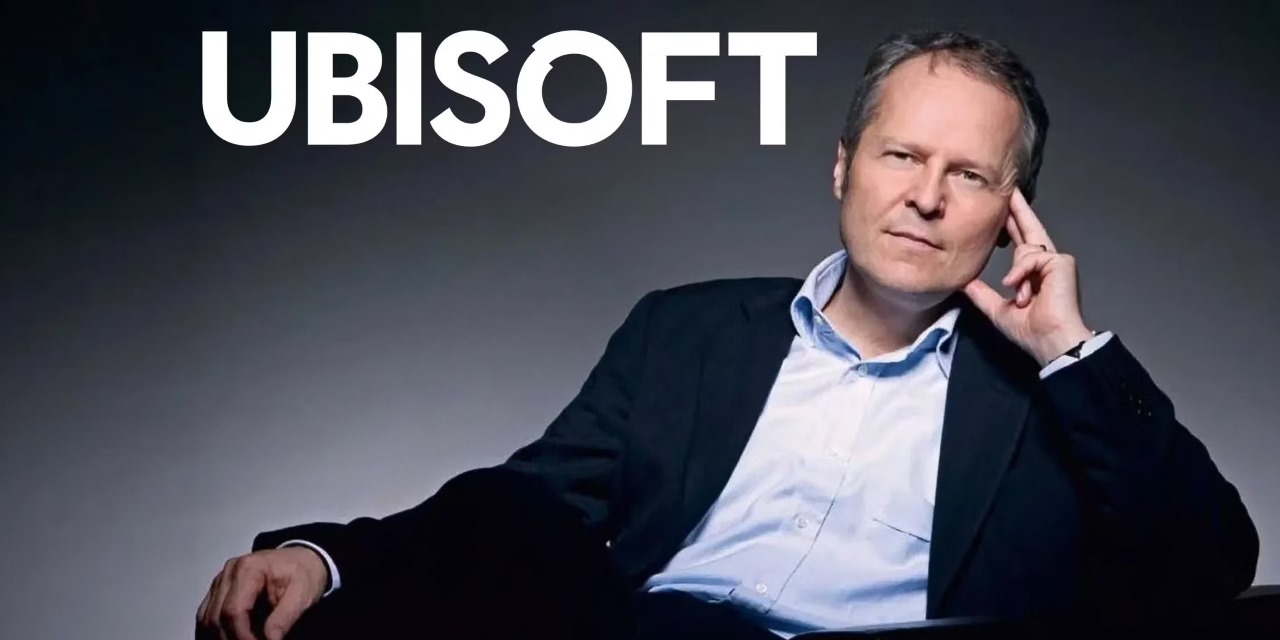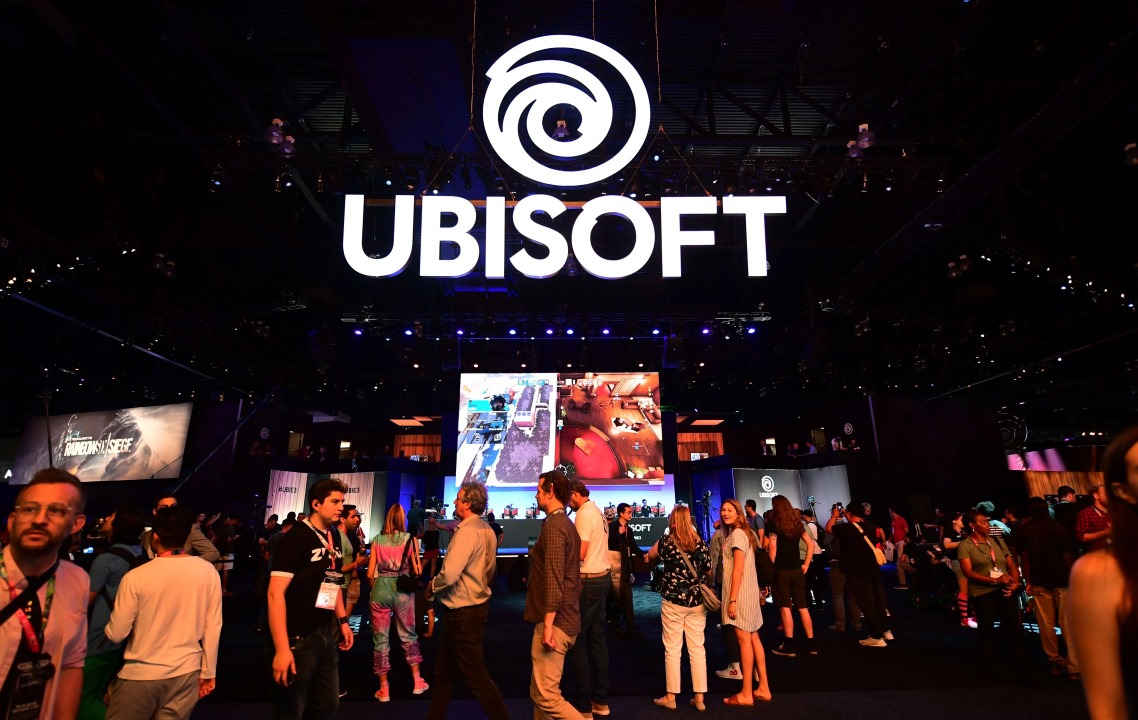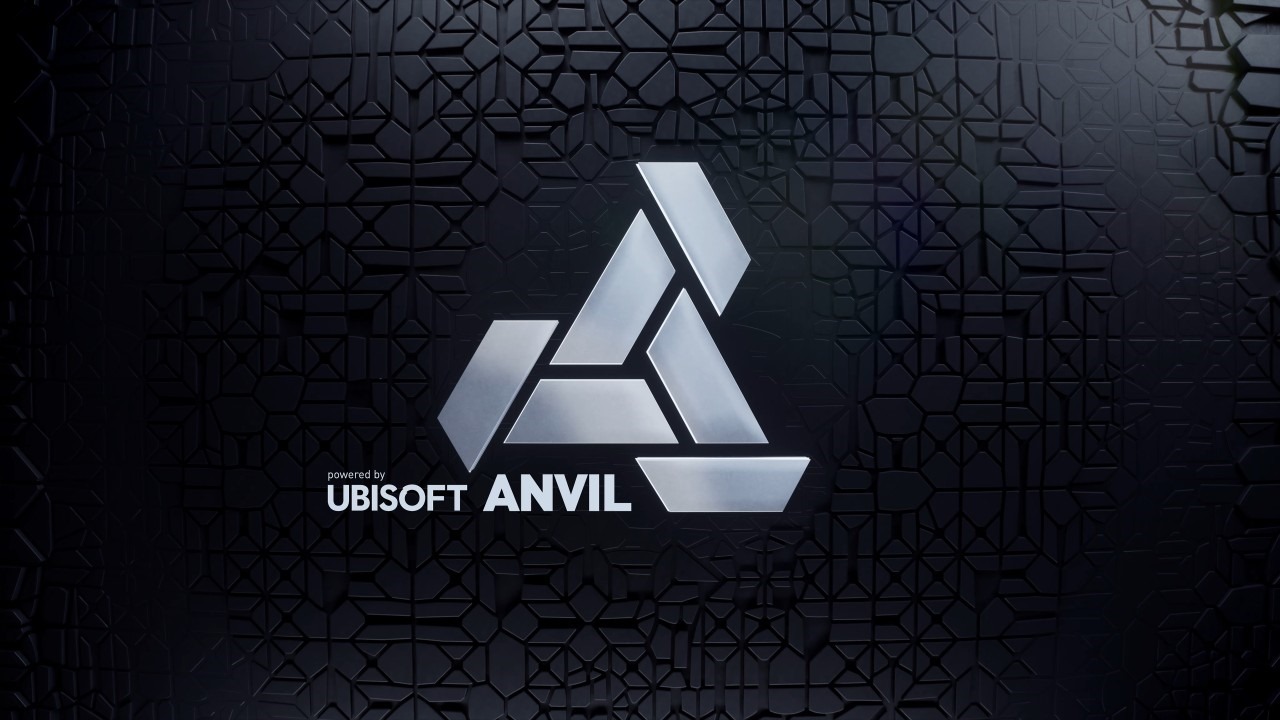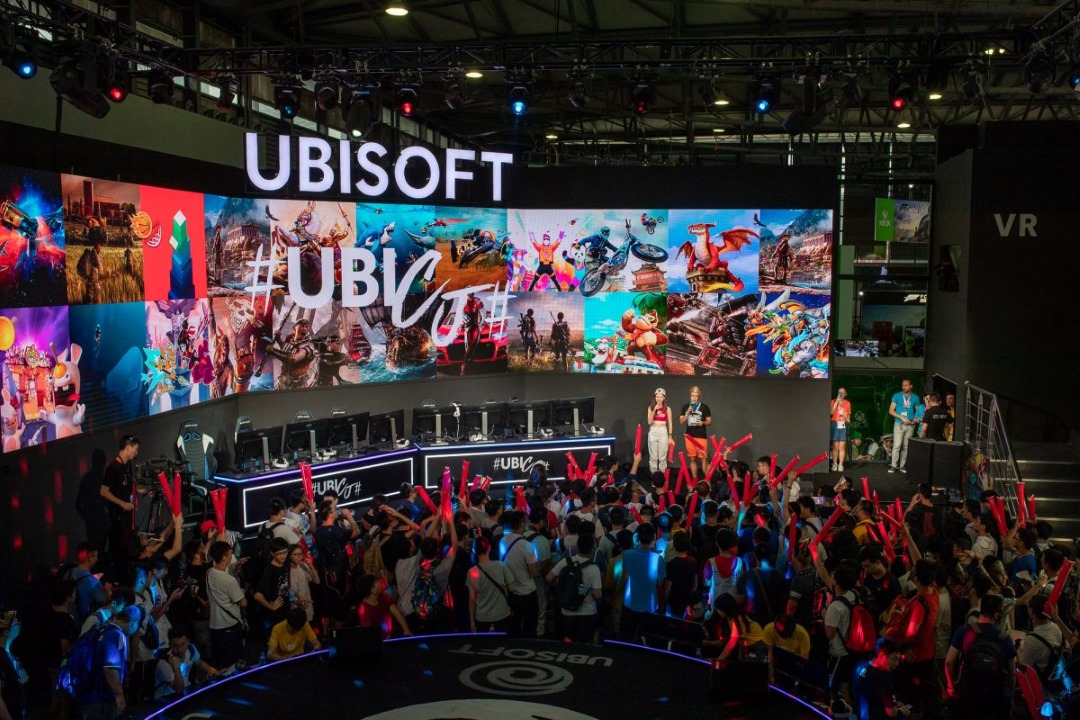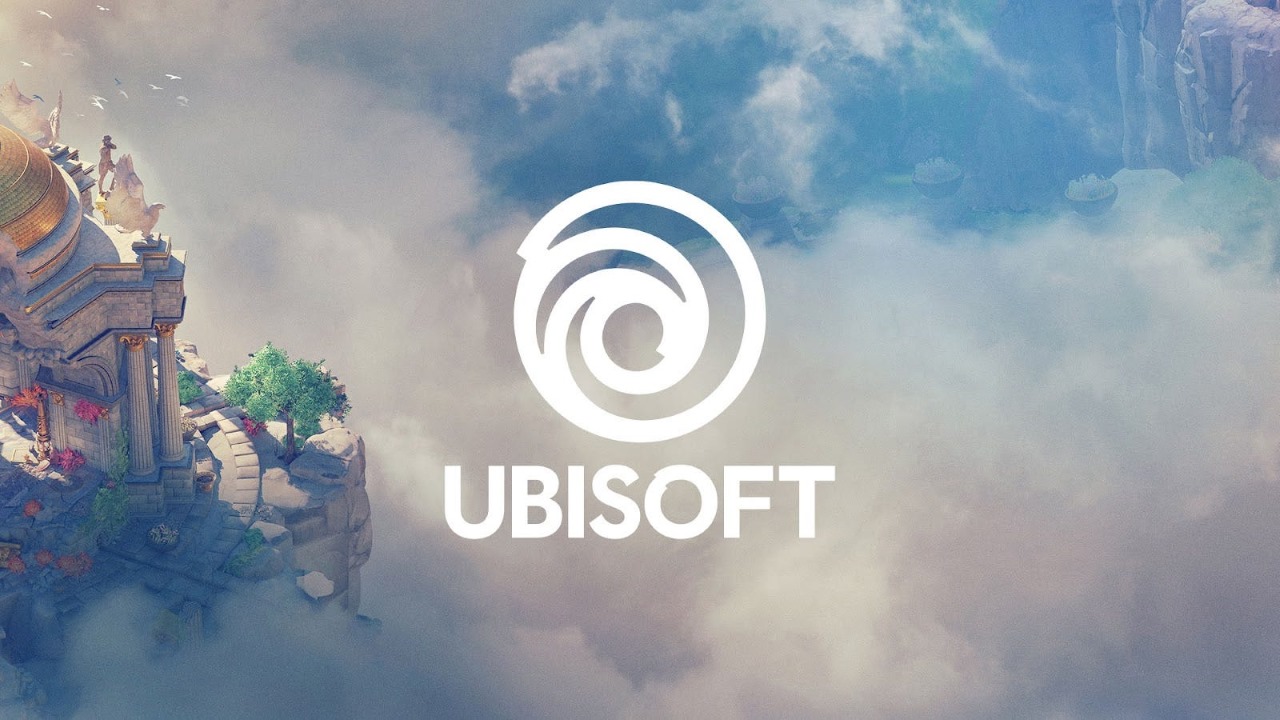Back in the quiet corners of Brittany, France, long before Assassin’s Creed rooftops or Far Cry outposts dominated screens across the globe, a small family-run operation was laying the groundwork for what would become one of the most influential video game companies in the world. That company was Ubisoft, and its rise from modest beginnings to industry titan is one of the more unlikely success stories in gaming history.
What makes Ubisoft's story fascinating isn't just its longevity or portfolio—though both are impressive. It's the people behind the games: five brothers from a small farming town who decided to take a risk on software at a time when most of France hadn’t yet embraced video games. Yves, Claude, Michel, Gérard, and Christian Guillemot didn’t start as game designers or coders. They were businessmen with vision, resourcefulness, and a deep belief in the potential of an emerging art form.
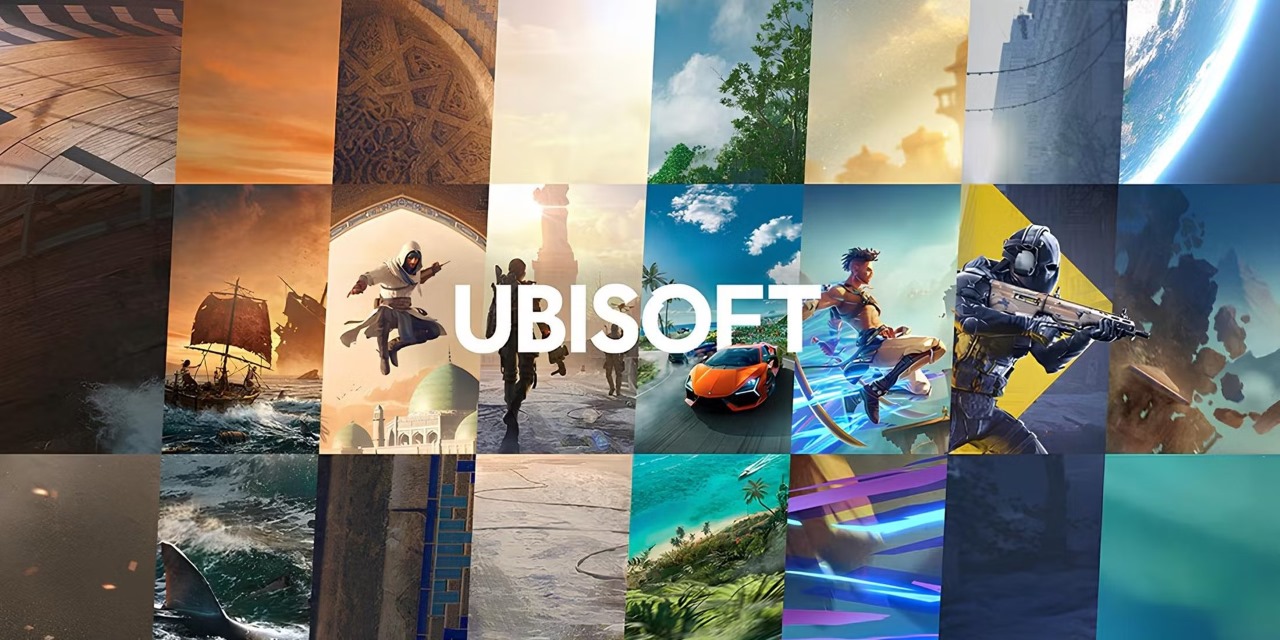
From distributing games in their parents' barn to opening studios around the world, Ubisoft's evolution has been shaped by entrepreneurial spirit, technological ambition, and sometimes, corporate turbulence. Its titles have sold hundreds of millions of copies and spawned multimedia empires. Yet, with success has also come scrutiny—workplace controversies, delayed projects, and shifting creative direction have challenged its leadership and values in recent years.
This is the complete story of Ubisoft: its founders, its challenges, its triumphs, and the games that made it a household name. The journey spans continents, genres, and generations—and it’s still being written.
Founding and Early Years
The origins of Ubisoft trace back to 1986, when the Guillemot brothers, sons of a French farming couple in Carentoir, Brittany, founded the company. The name "Ubisoft" is a portmanteau of “Ubiquité Software”, intended to evoke the idea of spreading software universally—something quite visionary for its time.
Before starting Ubisoft, the Guillemot family had dabbled in several businesses, including agricultural supply and mail-order sales. Their first foray into the tech world came through importing and distributing computer hardware and software, which was still a niche market in France during the early 1980s. While British and American gamers were enjoying the Commodore 64 and ZX Spectrum, France lagged behind in video game adoption. The Guillemots saw this as an opportunity.
Initially, Ubisoft didn’t develop games—it distributed them. The brothers made connections with major publishers like Electronic Arts, Sierra On-Line, and MicroProse, bringing English-language PC games to the French market. These early relationships would later prove invaluable, allowing them to understand both the creative and business sides of the industry.
As their distribution business grew, the Guillemots realized that developing their own titles could be even more lucrative—and creatively fulfilling. They began assembling a team of developers and artists, many of them young and eager to break into this new, exciting medium.
One of their earliest projects was Zombi, a first-person survival horror game released in 1986 for the Amstrad CPC. While it wasn’t a blockbuster, it marked Ubisoft’s first steps as a developer. Over the next few years, they expanded into game design, porting, and publishing their own creations while continuing to grow as a distributor.
By the early 1990s, Ubisoft had positioned itself as one of Europe’s most important emerging game companies, with operations already beginning in the UK, Germany, and the United States. The foundation had been laid—but the company still needed a true breakthrough. That would come soon, in the form of a limbless hero named Rayman.
Transition to Game Development
The decision to invest in internal development paid off in 1995 with the release of Rayman, a quirky and imaginative platformer created by Michel Ancel. Rayman was notable for its hand-drawn art, lush color palette, and whimsical design, which set it apart from the gritty pixel-heavy games of the time. It became a surprise hit on the Atari Jaguar, PlayStation, and PC platforms, ultimately selling over 4 million copies—an astonishing number for a new IP at the time.
Rayman didn’t just give Ubisoft financial momentum—it put them on the global development map. More importantly, it signaled that the studio could do more than just localize or distribute games from other companies; they could create iconic characters and entire worlds of their own.
This period saw Ubisoft establish a crucial foundation for its future: a commitment to in-house development combined with a decentralized approach. Instead of keeping all projects confined to a single headquarters, the company opened development studios across the globe, each with a level of creative autonomy. This global studio system would become a defining feature of Ubisoft's identity.
By the late ‘90s, Ubisoft was releasing games regularly for consoles and PC. Titles like POD, Monaco Grand Prix, and the Tom Clancy’s Rainbow Six series started gaining attention, particularly in Europe and North America.
The partnership with Tom Clancy was especially important. Ubisoft acquired the rights to use his name and create games based on his military and espionage fiction. This led to the birth of multiple tactical shooter franchises like Rainbow Six, Ghost Recon, and later Splinter Cell. These games not only provided serious, grounded alternatives to the arcade shooters of the time but also established Ubisoft as a leader in squad-based gameplay and tactical realism.
With Rayman delivering charm and accessibility, and the Tom Clancy games bringing depth and realism, Ubisoft had found its voice in the industry. As the 2000s approached, the company was now ready to compete with the biggest names in gaming.
Expansion and Global Presence
Ubisoft's success in the late ‘90s and early 2000s encouraged them to pursue a multi-studio model unlike anything most publishers were attempting at the time. Rather than centralizing development in France or outsourcing projects, they opened and acquired studios in key markets around the world, giving them not only creative bandwidth but also localization advantages and cultural diversity in their development pipeline.
One of the most influential moves was the creation of Ubisoft Montreal in 1997. With government incentives from Canada and a deep local talent pool, Montreal quickly became Ubisoft’s flagship studio. It was here that some of their most ambitious and critically acclaimed titles would be born.
As part of their international push, Ubisoft also expanded into:
-
Ubisoft Paris – a consistent force in supporting major franchises.
-
Ubisoft Toronto – established in 2009, this studio worked on Splinter Cell: Blacklist and Far Cry 6.
-
Ubisoft Sofia – played a key role in the Assassin’s Creed franchise, especially with side titles like Assassin’s Creed III: Liberation.
-
Ubisoft Pune, Ubisoft Singapore, and Ubisoft Bucharest – all vital for tech support, testing, and secondary development.
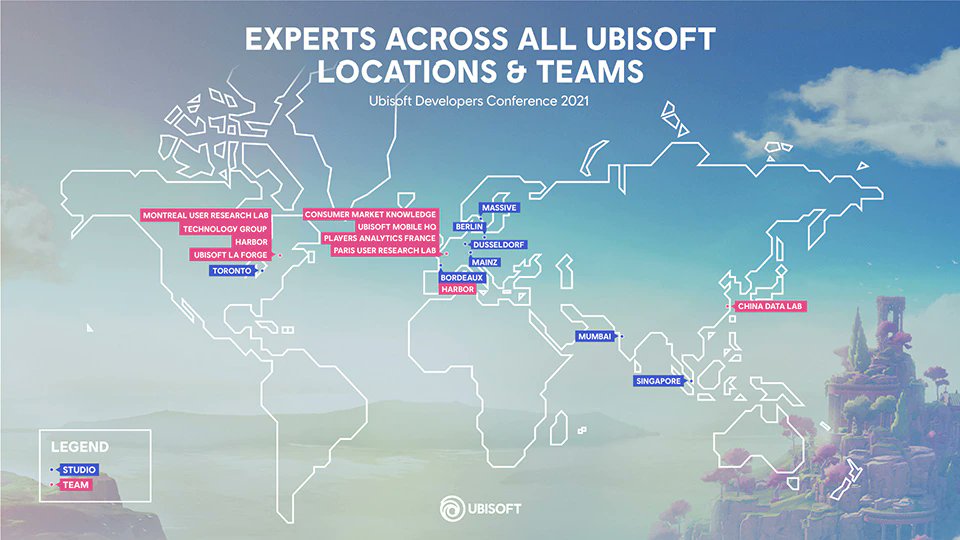
This distributed model allowed the company to develop multiple AAA titles in parallel, rotate franchises annually, and maintain a high release cadence—something that became very evident with the Assassin’s Creed series.
Ubisoft also acquired other studios, including Red Storm Entertainment (founded by Tom Clancy himself), Blue Byte in Germany (makers of The Settlers), and Reflections Interactive in the UK (Driver series), further bolstering their global portfolio.
This networked studio system wasn’t without challenges—coordination across time zones and languages was no small feat—but it allowed Ubisoft to scale its operations rapidly. By the mid-2000s, Ubisoft was one of the largest game publishers in the world, rivaling EA and Activision in size and scope.
Their games began to reflect that scale: open worlds, live-service updates, multiplayer integration, and cinematic storytelling became the studio's trademarks. But it wasn’t just the structure that was growing—it was the ambition of their games themselves.
Notable Game Franchises
Ubisoft’s transformation from a mid-size European publisher into one of the industry's titans was cemented by its franchise powerhouses. Few developers in gaming can match Ubisoft’s ability to launch and maintain blockbuster series across multiple platforms, genres, and generations. Their games have often come to define the capabilities of the consoles they launch on, and they’ve shaped player expectations for open-world design, stealth mechanics, and narrative depth.
Assassin’s Creed
First released in 2007, Assassin’s Creed began as a spiritual successor to Prince of Persia. It was developed by Ubisoft Montreal, originally under the direction of Patrice Désilets, and quickly became a juggernaut. With its unique blend of historical settings, stealth-action gameplay, and sci-fi meta-narratives, the series struck a rare chord with both mainstream audiences and lore-hungry players.
Ubisoft’s ability to release a major AC title nearly every year for a time was a testament to its global studio coordination. While that annualization eventually led to franchise fatigue, the company responded with reinventions like Assassin’s Creed Origins, Odyssey, and Valhalla, which shifted the series toward full-fledged RPGs.
Far Cry
Acquired from Crytek after the first game, the Far Cry franchise became Ubisoft’s signature first-person shooter series. Each entry drops players into a lawless region filled with charismatic villains, political unrest, and expansive combat zones. The formula has become familiar, but games like Far Cry 3 and Far Cry 5 still stand as milestones in emergent, sandbox-style FPS design.
Tom Clancy Universe
Ubisoft built an entire military-gaming subculture around the Tom Clancy name. From Rainbow Six and Ghost Recon to The Division and Splinter Cell, the company fused realism, tactical gameplay, and near-future fiction in ways few competitors could match. Rainbow Six Siege, in particular, became a sleeper hit that grew into a successful esports title.
Just Dance
While most of Ubisoft's core franchises appeal to dedicated gamers, Just Dance became a family and casual gaming sensation. It redefined motion-controlled party games and found surprising success on platforms like the Wii and Nintendo Switch. Even years after its peak, it continues to sell well during the holiday season.
Other Significant Titles
Ubisoft also created or nurtured beloved properties like Watch Dogs, The Crew, Prince of Persia, Rabbids, and Rayman. Though some of these series have been dormant in recent years (Prince of Persia only recently saw a revival), they remain important to the studio’s identity.
Few publishers can boast such a wide range of genres, from tactical espionage to historical stealth, from dance simulators to open-world RPGs. This versatility is what has helped Ubisoft stay at the forefront of global game development.
Leadership and Founders
Ubisoft’s success cannot be separated from the Guillemot family, especially Yves Guillemot, the company’s CEO and public face for over three decades. Unlike most tech CEOs, Yves has remained at the helm through every phase of Ubisoft’s evolution, from its early distribution days to the era of global publishing dominance.
Born in 1960, Yves Guillemot grew up in a close-knit farming family in Carentoir, Brittany. He and his brothers—Claude, Michel, Gérard, and Christian—were heavily involved in every step of Ubisoft’s creation. Each brother had a specific role: Claude handled operations, Michel took on international expansion, and Christian became instrumental in early tech development. Their shared entrepreneurial drive was inspired by their parents, who encouraged independence and risk-taking from an early age.
Unlike many companies that follow a typical corporate structure, Ubisoft has always operated with a strong family ethos, with trust and long-term vision at its core. Yves, in particular, is known for his calm demeanor and meticulous focus on growth, preferring steady expansion over explosive one-off hits. His leadership has been described as both conservative and quietly ambitious—a rare balance in the volatile world of game publishing.
However, Yves and Ubisoft’s leadership have not been without controversy. In 2020, the company faced a wave of allegations related to workplace misconduct and toxic culture. Several high-ranking executives resigned or were removed following investigations. Yves promised internal reforms, but critics argued that more substantial change was needed at the leadership level. Though Yves himself was not accused, his long-term position raised questions about accountability and oversight.
Despite the challenges, the Guillemots have maintained a firm grip on Ubisoft, using a dual-shareholding structure that has helped the family retain voting control. This structure allowed Ubisoft to successfully fend off a hostile takeover attempt by Vivendi, a major French media conglomerate, between 2015 and 2018. The Guillemots viewed the takeover bid as a threat to Ubisoft’s independence and creative freedom—and their fightback was seen as a landmark moment in modern gaming corporate history.
Today, Yves remains deeply involved in strategic direction, franchise development, and Ubisoft’s global positioning. While the future of Ubisoft’s leadership remains a topic of speculation, there's no denying that the Guillemot brothers built something extraordinary from the ground up, driven by vision, resilience, and family loyalty.
Challenges and Controversies
While Ubisoft's public image has often leaned into innovation and global expansion, the company has also endured its share of serious internal issues and industry criticism—especially over the last decade.
Hostile Takeover by Vivendi
One of the most high-stakes corporate dramas in Ubisoft’s history began in 2015, when French conglomerate Vivendi started acquiring Ubisoft shares. Vivendi had already taken over Gameloft, another Guillemot-founded company, and many feared that Ubisoft would be next.
The Guillemots launched a multi-year resistance, appealing to shareholders, regulators, and the public to maintain Ubisoft’s independence. They increased internal shareholding, partnered with Canadian investors, and ultimately succeeded in pushing Vivendi out in 2018. The episode was tense but demonstrated Ubisoft’s resilience and the family's fierce commitment to autonomy.
Workplace Misconduct and Cultural Problems
In 2020, a wave of allegations exposed deep-rooted problems within Ubisoft's internal culture. Reports emerged of sexual harassment, toxic management, and a lack of accountability at several of Ubisoft’s major studios, including Montreal and Paris.
Several high-profile executives—including Serge Hascoët (Chief Creative Officer), Tommy François (VP Editorial), and Yannis Mallat (CEO of Ubisoft Canada)—resigned or were forced out. While Ubisoft launched internal investigations and pledged reforms, employees and watchdog groups voiced dissatisfaction with the pace and sincerity of the changes.
The controversy cast a shadow over the company’s creative successes. It prompted further scrutiny about creative stagnation, repetition in franchises, and Ubisoft’s reliance on formulaic open-world design. Games like Assassin’s Creed Valhalla and Watch Dogs: Legion were well-received but also criticized for playing it too safe.
Project Delays and Creative Fatigue
Ubisoft’s most successful franchises have sometimes become victims of their own scale. Titles like Assassin’s Creed and Far Cry were released on an almost annual basis for years. While this schedule brought in steady revenue, it also led to franchise fatigue. In response, Ubisoft began spacing out releases and allowing more development time, but delays and internal reboots plagued high-profile projects like Skull & Bones, Beyond Good & Evil 2, and the Prince of Persia remake.
The company has also faced accusations of creative stagnation, with critics pointing out that many Ubisoft games share similar open-world templates, repetitive side content, and formulaic mission structures. This prompted calls for greater diversity in gameplay design and risk-taking.
Despite these challenges, Ubisoft remains a financially strong and creatively ambitious company. Its leadership acknowledges the need for internal reform and external reinvention. Whether it can successfully navigate these waters remains a key question for the future of the company.
Ubisoft's Global Studios and Subsidiaries
One of the most distinctive aspects of Ubisoft’s development strategy is its globally integrated studio network. Unlike many game publishers that keep most of their development localized, Ubisoft has embraced a decentralized structure—fostering over 45 studios in more than 20 countries. This model has enabled them to develop massive, multi-layered AAA projects with collaborative workflows across time zones.
Ubisoft Montreal
Arguably the crown jewel in Ubisoft’s global network, the Montreal studio, established in 1997, is responsible for shaping the company's biggest franchises. Assassin’s Creed, Far Cry, Watch Dogs, and Rainbow Six have all been heavily developed here. Its large-scale production capacity and creative leadership have made it a centerpiece of Ubisoft's AAA development.
Ubisoft Paris
This is the original and foundational studio, playing a critical role in everything from Just Dance to co-development support on flagship franchises. It's also involved in design, engine development, and motion capture, particularly for narrative-heavy games.
Ubisoft Toronto
Launched in 2010, this Canadian studio quickly grew in prominence, leading development on Splinter Cell: Blacklist and assisting on Far Cry 6 and Assassin’s Creed Valhalla. Known for its strong design leadership and technical prowess, it’s now one of Ubisoft’s most productive sites.
Ubisoft Bucharest, Pune, Kyiv, Sofia
These support studios play essential roles in co-development, porting, and QA testing. Ubisoft Pune, for example, is known for handling mobile and legacy ports, while Sofia contributed heavily to Assassin’s Creed: Rogue and Liberation.
Ubisoft Massive (Sweden)
The studio behind The Division series and currently developing the highly anticipated Star Wars Outlaws, Ubisoft Massive is a leader in live-service frameworks and world-building for online RPGs.
Other Key Studios
-
Ubisoft San Francisco – Rocksmith and South Park games.
-
Ubisoft Milan – Co-developed Mario + Rabbids Kingdom Battle with Nintendo.
-
Ubisoft Reflections (UK) – Known for the Driver series and co-development on The Crew.
This studio model allows Ubisoft to distribute development across hundreds of teams, enabling simultaneous production of numerous titles. It’s a logistical marvel—and at times, a creative challenge. But it’s also what gives Ubisoft the scalability to maintain multiple global franchises.
Company Culture and Innovations
Ubisoft has always prided itself on being artist-first, empowering teams with creative autonomy while maintaining a centralized editorial vision. This duality has been a strength and, at times, a source of friction.
In-House Engines and Tech
One of the most important innovations has been the development of proprietary game engines. The Anvil engine, first used in Assassin’s Creed, allows detailed animation systems and crowd AI. The Dunia engine, built off CryEngine for Far Cry, specializes in large-scale open worlds. The Division’s Snowdrop engine is now powering Star Wars Outlaws and other future projects.
Ubisoft also invests heavily in AI behavior, procedural animation, and physics simulation—even dabbling in blockchain and cloud technologies, although those experiments remain cautious and limited.
Live-Service Model
Over the past decade, Ubisoft embraced the games-as-a-service model. Titles like Rainbow Six Siege, The Crew, and The Division receive regular updates, events, and monetization systems. This approach ensures longer player retention, but also places the company in the ongoing tension between monetization and artistic integrity.
Employee Initiatives
Following criticism over workplace conditions, Ubisoft has made public commitments to improving transparency, diversity, and internal accountability. New departments for HR reporting, creative diversity, and leadership development have been introduced—but many employees still seek more systemic cultural shifts.
Creative Process
Ubisoft once relied heavily on a central editorial board to greenlight ideas across studios. While this created cohesion, it also led to sameness in game structures. In response, Ubisoft has begun decentralizing its creative process, giving more power to studio leads. The results of this change are just beginning to show in games like Mario + Rabbids and the upcoming Star Wars title.
Community Engagement and Events
For all its corporate infrastructure, Ubisoft has remained surprisingly close to its audience over the years. Its marketing efforts, fan events, and developer transparency initiatives help foster an active and loyal player base.
Ubisoft Forward
Ubisoft’s digital showcase, created after the cancellation of E3 in 2020, has become a major event for unveiling new games, trailers, and project updates. These streams offer fans direct insight into the company’s upcoming slate while reinforcing its image as a player-first publisher.
Community Teams and Forums
Ubisoft has invested in community management, supporting forums, Discords, and fan communities across platforms. Feedback loops between developers and fans are now baked into post-launch development cycles, particularly for live-service titles.
Partnerships and Sponsorships
Ubisoft has engaged in cross-media ventures, including comics, novels, Netflix adaptations, and even full-length films (Assassin’s Creed movie starring Michael Fassbender, for instance). Collaborations with Nintendo (Mario + Rabbids) and even indie studios (via Ubisoft Originals) broaden its brand reach.
They’ve also supported indie programs, providing resources and publishing assistance to small teams within their ecosystem—another nod to their beginnings as a scrappy startup.
Future Outlook
Ubisoft stands at a pivotal moment in its history. With nearly 40 years of development under its belt, the company now faces an increasingly competitive landscape and rapidly changing player expectations. Yet, it’s also positioned with an unmatched global studio infrastructure, legendary IPs, and a CEO who’s never been shy about ambitious moves.
Upcoming Projects
-
Assassin’s Creed Mirage marks a return to the franchise’s stealth roots.
-
Star Wars Outlaws, developed by Massive Entertainment, is Ubisoft’s first foray into the Star Wars universe and aims to blend open-world design with cinematic storytelling.
-
Avatar: Frontiers of Pandora looks to tap into cross-media synergy with James Cameron’s universe.
Challenges Ahead
-
Can Ubisoft break the repetition of open-world design and surprise players again?
-
Will they fully address internal culture reform and rebuild employee trust?
-
Can they successfully navigate a world where cloud gaming, AI, and decentralization might change development forever?
Whatever the answers, Ubisoft’s journey—from a family barn in rural France to a global creative empire—is one of the most compelling sagas in gaming. The Guillemots may have started with mail-order software, but what they built now spans continents, cultures, and millions of players every day.
Their story, like many of the worlds they create, is far from finished.

